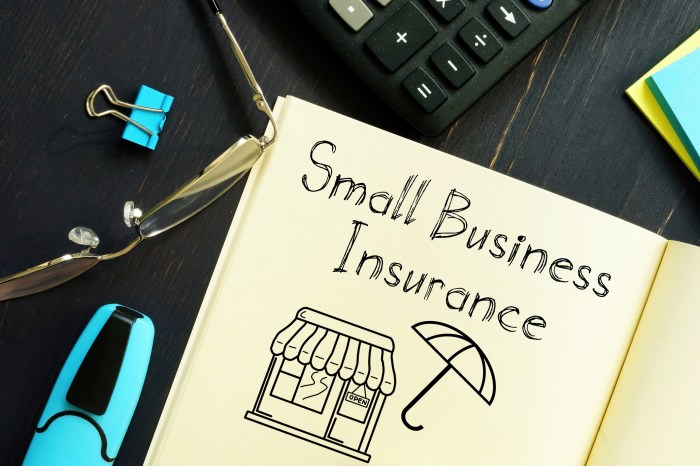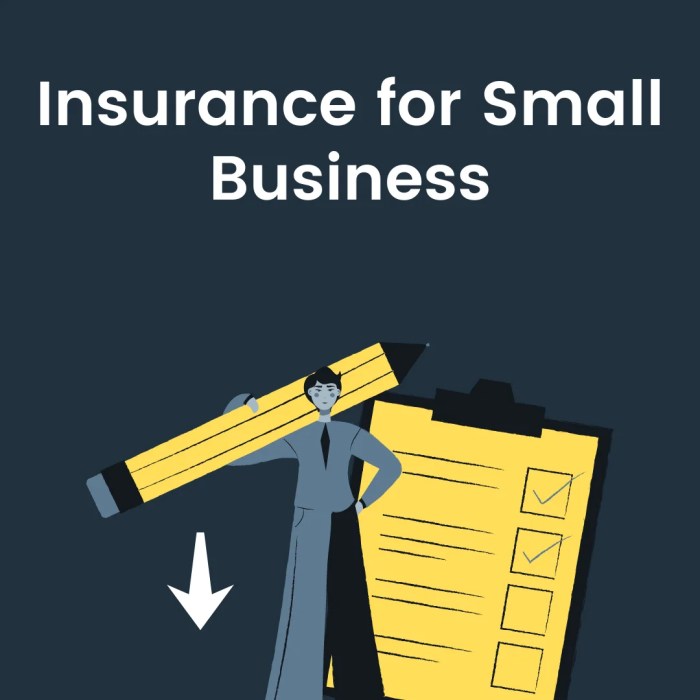Three small business insurance reviews – Protecting your small business is crucial for its long-term success. Unexpected events, from property damage to liability lawsuits, can quickly derail even the most well-planned enterprises. That’s where small business insurance comes in. Choosing the right policy can feel overwhelming, with numerous providers and coverage options available. This comprehensive guide reviews three leading small business insurance providers, highlighting their strengths and weaknesses to help you make an informed decision.
Understanding Your Small Business Insurance Needs: Three Small Business Insurance Reviews
Before diving into specific provider reviews, it’s essential to understand the types of insurance relevant to your business. The ideal coverage depends heavily on your industry, size, and location. Common types of small business insurance include:

Source: co.za
- General Liability Insurance: Protects your business from claims of bodily injury or property damage caused by your operations or employees. This is often a cornerstone of small business insurance and covers things like slip and fall accidents on your premises.
- Professional Liability Insurance (Errors & Omissions): Crucial for businesses offering professional services, this insurance protects against claims of negligence or mistakes in your work. This is particularly important for consultants, lawyers, and designers.
- Commercial Property Insurance: Covers damage or loss to your business property, including buildings, equipment, and inventory, from events like fire, theft, or vandalism. This also often includes business interruption insurance, which covers lost income due to covered events.
- Workers’ Compensation Insurance: Required in most states for businesses with employees, this insurance covers medical expenses and lost wages for employees injured on the job.
- Commercial Auto Insurance: Protects your business vehicles from accidents and liability claims arising from their use. This is vital if your business involves deliveries, field service, or employee commuting.
- Cyber Liability Insurance: In today’s digital age, this insurance protects your business from data breaches, cyberattacks, and resulting financial losses. It’s increasingly important for businesses that handle sensitive customer data.
Many small business owners opt for a Business Owners Policy (BOP), which bundles several common coverages into a single, cost-effective package. However, the specific needs of your business should always guide your insurance choices. Consult with an insurance professional to determine the most appropriate coverage for your unique circumstances.
Review 1: [Provider A Name]
A Focus on Simplicity and Affordability
A Focus on Simplicity and Affordability
Strengths:
- User-friendly online platform for quotes and policy management.
- Competitive pricing, especially for smaller businesses with basic needs.
- Excellent customer service ratings, with readily available phone and online support.
- Clear and concise policy documents, avoiding complex jargon.
Weaknesses:, Three small business insurance reviews
- Limited customization options; may not be suitable for businesses with highly specialized needs.
- Fewer add-on coverage choices compared to some competitors.
- May not offer the most competitive rates for larger businesses or those with higher risk profiles.
Review 2: [Provider B Name]
Comprehensive Coverage and Robust Features
Comprehensive Coverage and Robust Features
Strengths:
- Wide range of coverage options to cater to diverse business needs.
- Highly customizable policies to tailor coverage to specific risks.
- Strong financial stability and reputation within the industry.
- Access to risk management resources and consultations.
Weaknesses:, Three small business insurance reviews
- Pricing can be higher compared to more basic options.
- Policy documents can be complex and require careful review.
- Customer service response times may be slower than with smaller providers.
Review 3: [Provider C Name]
Specializing in Niche Industries
Specializing in Niche Industries
Strengths:
- Deep understanding of specific industry risks and regulations.
- Tailored insurance solutions for businesses in specialized sectors.
- Strong expertise in risk assessment and mitigation.
- Proactive communication and support to clients.
Weaknesses:, Three small business insurance reviews
- May not be suitable for businesses outside their area of specialization.
- Pricing may be higher due to specialized coverage.
- Limited online resources and self-service options.
Choosing the Right Small Business Insurance Provider
The best small business insurance provider for you depends on your specific needs and priorities. Consider the following factors:
- Your business type and industry: Some providers specialize in certain industries, offering tailored coverage and expertise.
- Your budget: Compare quotes from multiple providers to find the best value for your money.
- The level of coverage you need: Determine the essential coverages for your business and choose a provider that offers them.
- Customer service and support: Read reviews and check customer service ratings before making a decision.
- Policy clarity and ease of understanding: Ensure you understand the terms and conditions of your policy before signing.
Frequently Asked Questions (FAQ)
- Q: How much does small business insurance cost? A: The cost varies greatly depending on your business type, location, coverage needs, and risk profile. It’s best to obtain quotes from multiple providers to compare prices.
- Q: What is a Business Owners Policy (BOP)? A: A BOP is a package policy that combines several common coverages, such as general liability and commercial property insurance, into a single policy for convenience and cost savings.
- Q: Do I need workers’ compensation insurance? A: If you have employees, workers’ compensation insurance is typically required by law in most states. Failure to carry this coverage can result in significant penalties.
- Q: What is cyber liability insurance? A: Cyber liability insurance protects your business from financial losses resulting from data breaches, cyberattacks, and other cyber-related incidents.
- Q: How can I find a reputable insurance provider? A: Research providers online, read reviews, check their financial stability ratings, and compare quotes from multiple companies before making a decision. Consider consulting with an independent insurance agent for unbiased advice.
Resources
- SBA Guide to Small Business Insurance
- National Association of Insurance Commissioners
- [Add links to reputable insurance comparison websites]
Call to Action
Protecting your small business is an investment in its future. Don’t wait for a disaster to strike. Get started today by comparing quotes from different providers and finding the right insurance coverage to fit your needs. Contact an independent insurance agent or use online comparison tools to explore your options.

Source: ovensing.com
FAQ Compilation
What types of insurance are essential for small businesses?
Common essential coverages include general liability, professional liability (errors and omissions), property insurance, and workers’ compensation (if applicable).
How much does small business insurance typically cost?
Costs vary greatly depending on factors like industry, location, coverage amounts, and risk assessment. Obtaining quotes from multiple providers is crucial for comparison.
Can I bundle different types of insurance for a discount?

Source: bannerbear.com
Many insurers offer discounts for bundling multiple policies, such as general liability and property insurance. Inquire about this possibility during your quote process.
What should I look for when comparing insurance providers?
Consider factors such as coverage breadth, claims handling processes, customer service responsiveness, financial stability ratings, and overall value for the premium paid.